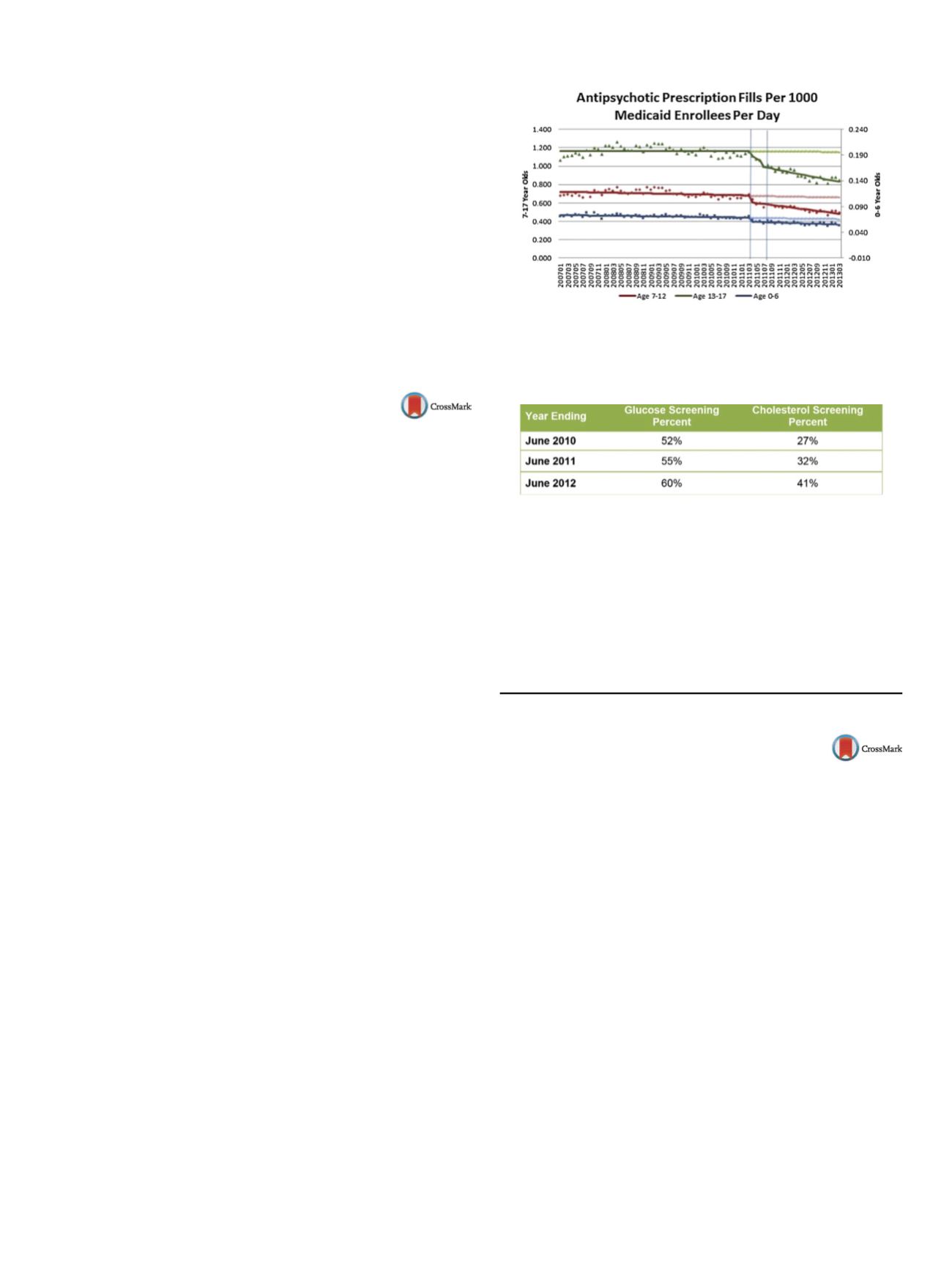

25th European Congress of Psychiatry / European Psychiatry 41S (2017) S303–S364
S343
interfering thoughts. Eighty-eight percent (
n
= 132) were experien-
cing trauma associated disturbance. Answers from 78.6% (
n
= 118)
of the participants indicated that they should be further referred to
a specialist. The findings were not affected by gender or age.
Conclusion
We have found that most of the participants showed
signs of PTSD. Our findings highlight the psychological impact of
war on Syrian people. A definite diagnosis of PTSD can be made
with detailed psychiatric examination, however given the amount
of victims and available staff a brief screening instrument may
help identify potential cases to be further evaluated. PTSD has life-
long consequences and trauma can be passed through generations.
International support for war victims should include psychological
support and interventions.
Disclosure of interest
The authors have not supplied their decla-
ration of competing interest.
http://dx.doi.org/10.1016/j.eurpsy.2017.02.306EW0693
Program for the use of antipsychotics
with metabolic monitoring in North
Carolina medicaid children
S. Wegner
1 , 2 ,∗
, J. McKee
3, T. Trygstad
4, L. Wegner
5, A. Stiles
61
AccessCare, Morrisville, USA
2
University of North Carolina-Chapel Hill, department of pediatrics,
Chapel Hill, USA
3
Community care of North Carolina, pharmacy operations and payer
programs, Raleigh, USA
4
Community care of North Carolina, pharmacy programs, Raleigh,
USA
5
University of North Carolina-Chapel Hill, UNC development and
behavioral pediatrics, Chapel Hill, USA
6
University of North Carolina-Chapel Hill, Sr. VP - network
development and strategic affiliations, Chapel Hill, USA
∗
Corresponding author.
Introduction
Children are at greater risk than adults for weight
gain and metabolic disorders including hyperlipidemia and dia-
betes with newer antipsychotics. A web-based safety-monitoring
program using a prior documentation model required submission
of patient safety data (prior documentation) for insurance coverage
at the pharmacy point of sale. This program launched in April of
2011, covering all NC Medicaid and Health Choice recipients under
age 18. Clinical monitoring parameters and interactive educational
features were developedwith pediatric psychiatric experts and key
mental health stakeholder groups.
Objectives
Using a four-year run in period and a full 9 months
of post implementation claims data, evaluate the rates of anti-
psychotic prescribing and safety monitoring before and after the
implementation of the A + KIDS program.
Results
Implementation of this program was associated with
a consistent monthly decrease in overall antipsychotic use and
increases in patient monitoring of glucose and lipid (Figure. 1,
Table 1 ).Conclusions
The prior documentation registry was effective in
decreasing antipsychotic use and increasing safety monitoring. The
impact of changing to more traditional prior authorization on the
same clinical endpoints is currently under evaluation.
Fig. 1
A+KIDS Population Antipsychotic Prescription Fills per
1000 Medicaid Enrollees Per Day
Table 1
Percent of A+KIDS Patients on an AntipsychoticwithMeta-
bolic Monitoring Recorded in Claims.
Disclosure of interest
The authors have not supplied their decla-
ration of competing interest.
http://dx.doi.org/10.1016/j.eurpsy.2017.02.307e-Poster Walk: Neuroimaging and neuroscience in
psychiatry
EW0694
Effort-based reward task, a behavioral
measure to study negative symptoms
in schizophrenia
A. Arcos
1, D. Berge
1 , 2 ,∗
, C. Pretus
1, A. Pous
1, C. Diez-Aja
3,
L. Gomez
3, O. Vilarroya
1 , 21
Universitat autonoma de Barcelona, psychiatry, Barcelona, Spain
2
IMIM, hospital del MAR research institute, neuroscience, psychiatry,
Barcelona, Spain
3
Parc de Salut Mar, psychiatry, INAD, Barcelona, Spain
∗
Corresponding author.
Negative symptoms in schizophrenia, and specifically amo-
tivation/apathy, have been correlated with impaired general
functioning. Its neurobiological basis are thought to rely on an aber-
rant reward system. To study the association of reward deficits
and negative symptoms, 25 schizophrenia patients and 35 controls
underwent a new reward behavioral task. Briefly, patients had
to choose a level of effort (1 to 3), each one corresponding to a
progressively increasing number of required button presses and
3 different probabilities to win an economic reward. We compa-
red the chosen effort between groups and correlated this output
with the score of the Brief negative symptoms scale in the group of
patients. Patients chose less effort than controls but without rea-
ching significance level (meanpatients effort: 2.49 vs controls: 2.76,
P
= 0.064). A negative correlation was found between BNSS score
and effort chosen for the maximum reward corrected by sex (
t
:
−
0.021,
P
= 0.045). When the group of patients was split according
to negative symptoms score, patients with more negative symp-
toms (BNSSS score > 23) chose significantly less effort than patients


















